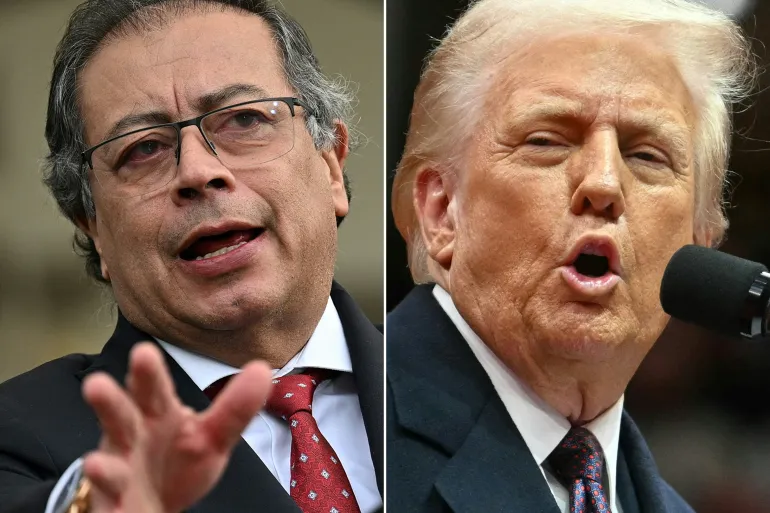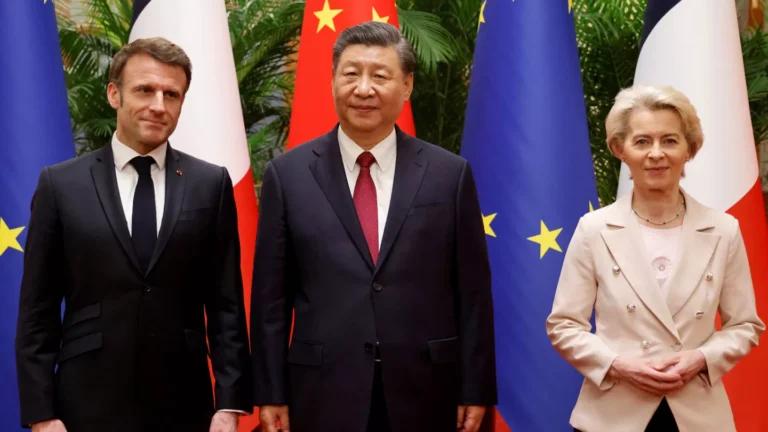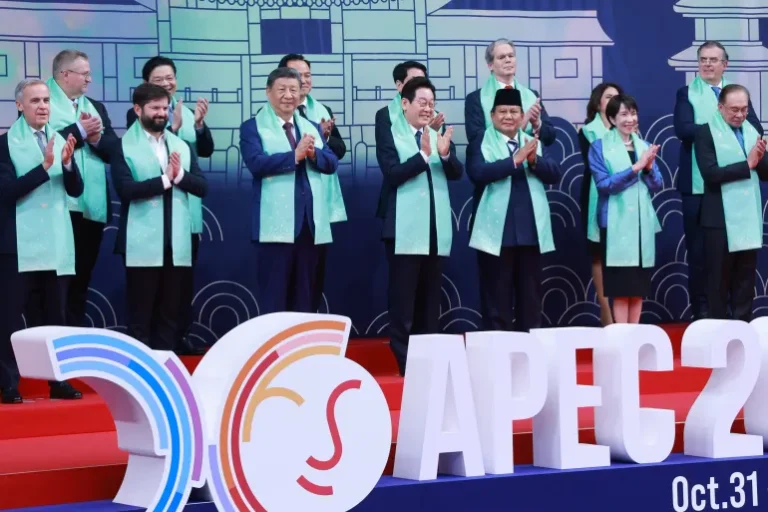
The diplomatic relationship between the U.S. and Colombia has hit a stunning low. President Donald Trump launched an aggressive public attack. He directed the attack at Colombian President Gustavo Petro. Trump called Petro an “illegal drug leader.” Furthermore, he announced a drastic policy change. The U.S. will immediately cut all financial aid and subsidies to the South American nation. This move marks a major escalation. It severely strains ties with a long-standing key ally. Trump
The Presidential Accusation and Threat Trump
President Trump made his announcement swiftly. He used his social media platform to deliver the declaration. His language was unusually provocative. Trump accused Petro of actively promoting drug production. He wrote that Petro “is an illegal drug leader strongly encouraging the massive production of drugs.” He stated that this was happening “in big and small fields, all over Columbia.”
Moreover, Trump characterized U.S. aid as a waste. He called the large subsidies a “long term rip off of America.” Consequently, he declared the payments would cease immediately. He used capital letters for emphasis. The President’s post also included a stark warning. Its ordered Petro to “close up these killing fields immediately.” He threatened unilateral U.S. military action otherwise. He cautioned that it “won’t be done nicely.” This aggressive rhetoric suggests a possible shift. It hints at a dramatic, muscular expansion of U.S. counter-narcotics operations.
The Immediate Context: The Drug War Decertification
This escalation did not occur in a vacuum. It follows months of growing friction. For example, the U.S. administration had previously accused Colombia of non-cooperation. They cited failures in the drug war. In September, the U.S. formally decertified Colombia. This status means the U.S. believes the country has “failed demonstrably” to uphold counternarcotics agreements.
Colombia is the world’s largest exporter of cocaine. Furthermore, coca cultivation reached record levels last year. This fact fueled the U.S. government’s frustration. However, decertification often triggers aid cuts. Washington had temporarily issued a waiver. This waiver maintained cooperation for national security reasons. Trump’s latest announcement, therefore, overrides this caution. It transforms policy friction into an open diplomatic break.
The Counter-Narrative: Petro’s Rebuke Trump
Colombian President Gustavo Petro quickly rejected the accusations. He responded forcefully on social media. Petro has consistently argued that his government is committed to peace. Trump stated that “trying to promote peace in Colombia is not being a drug trafficker.” President insisted that his administration has achieved record cocaine seizures. He also highlighted the destruction of laboratories. He noted the increased arrests of illegal group members.
Consequently, Petro suggested Trump was misinformed. He advised the U.S. President to “take a good look at Colombia.” He asked him to “determine where the drug traffickers are and where the democrats are.” Petro, a former guerrilla member, represents a significant political shift. This is Colombia’s first progressive leader. Trump calls for consuming nations to reduce demand. He critiques past policies. He argues they have devastated Latin American societies.
The Spark: Caribbean Strikes
The final trigger for Trump’s outburst was likely Petro’s own condemnation of U.S. actions. The U.S. has been conducting military strikes in the Caribbean Sea. They claim to target suspected drug-smuggling vessels. Petro has sharply criticized these operations. He accused the U.S. of a sovereignty violation. More tragically, he claimed a September strike killed an innocent Colombian fisherman. This man, Alejandro Carranza, reportedly had no ties to drug trafficking. Petro wrote angrily that the U.S. “invaded our national territory” and committed “murder” with a missile. This direct accusation of murder likely provoked Trump’s retaliatory action.
The Policy Fallout: Humanitarian and Diplomatic Trump
The announced cut to aid has massive implications. Colombia is historically the largest recipient of U.S. assistance in Latin America. The funding supports various programs. These include counter-narcotics efforts, security cooperation, and humanitarian work.
Humanitarian Crisis
The suspension of aid immediately compounds ongoing crises. Colombia faces a complex, decades-long humanitarian crisis. This is driven by armed conflict and displacement. U.S.-funded foreign assistance supports critical health programs. It helps support food security initiatives. Furthermore, it aids communities disproportionately affected by conflict. These communities often include Indigenous and Afro-Colombian populations. Earlier in the year, a 90-day freeze on U.S. foreign aid already caused disruptions. The permanent end of payments will significantly worsen conditions. It will strain Colombia’s ability to manage its internal conflicts.
Security and Diplomacy
Moreover, the aid cut is a diplomatic disaster. Colombia was a critical military partner. It held Major Non-NATO Ally status. The U.S. relied on Bogota for regional stability. Cutting aid severs a vital link. It diminishes U.S. influence in the region. Consequently, it pushes Colombia toward other partners. Petro has already pursued closer strategic ties with nations like China. This move weakens U.S. leverage. It risks fracturing regional security architecture. The U.S. may also lose intelligence-sharing opportunities. These opportunities are vital for the fight against organized crime.
The Clash of Ideologies and Sovereignty
The conflict between Trump and Petro is more than a policy dispute. It is a fundamental clash of ideologies. It is a challenge to national sovereignty.
Trump’s position is clear. It views drug production as an “armed attack” on the U.S. He advocates aggressive, unilateral military force. He frames the issue within the War on Terror paradigm. Conversely, Petro’s vision is progressive. Emphasizes peace agreements. They seeks social and military intervention. He is keen to assert Colombia’s dignity. He rejects foreign interference.
The rhetoric has already had profound diplomatic consequences. The State Department previously revoked Petro’s visa. This happened after he publicly urged U.S. soldiers to “disobey the orders of Trump.” This occurred during a protest at the U.N. General Assembly. Therefore, the relationship had already deteriorated badly. Trump’s latest post merely formalized the collapse.
The threat of the U.S. closing up Colombia’s “killing fields” itself is particularly alarming. It suggests a potential military occupation or invasion. This language is historically charged. It echoes past U.S. interventions in Latin America. Thus, it is an overt challenge to Colombian sovereignty. It raises the specter of a dangerous new phase in U.S. foreign policy. The world watches closely. The unprecedented hostility toward a former close ally signals a turbulent new era in inter-American relations. Trump Calls




